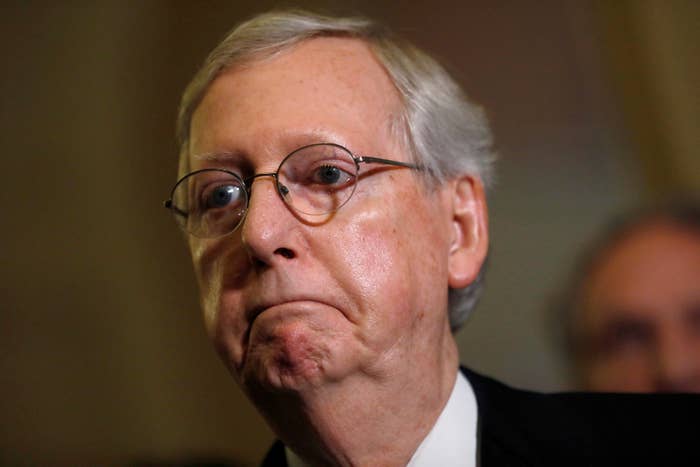
The Senate’s independent referee has given Republicans a deadline of September 30 to revive their plan to repeal Obamacare. After that point, passing a bill becomes much more difficult.
Senate Republicans had been trying to use a special process called budget reconciliation to repeal the Affordable Care Act. Reconciliation is tricky and has many limitations, but comes with one huge advantage — you can use it to pass a bill with 51 votes instead of the usual 60. For Republicans, who hold 52 Senate seats, it represented a way to repeal Obamacare that the Democrats could not filibuster.
Of course, that all fell apart in late July when three Republican senators refused to vote for a repeal bill. In theory the bill could still be revived. But as first reported by Bloomberg News, the Senate Parliamentarian, a non-partisan official who interprets Senate rules, has told Republicans that the reconciliation process essentially expires at the end of September.
That means that the party has one month to convince one of GOP senators Susan Collins, Lisa Murkowski, or John McCain to change their mind and support the repeal bill to keep it alive. Otherwise, they’ll have to start all over again.
The party could, instead, try to work with Democrats on a health bill that can get to 60 votes.
Senate Democrats have unanimously opposed repealing Obamacare and have instead called for fixing it. A bipartisan bill would look vastly different than a repeal bill passed by Republicans alone.
The reason for the deadline is that budget reconciliation can only be used once each year. In theory, after September ends Republicans can use the 2018 budget reconciliation to repeal Obamacare, but they have already pledged to use it for tax reform. That brings Congress to next fall, just before the midterm elections, when a vote on something as complicated and controversial as health care will be even more difficult.
There was some confusion about when the 2017 budget reconciliation would expire — whether it would be at a hard date or remain usable up until Congress passes a 2018 budget. Ultimately, the Parliamentarian set the deadline at September 30.
The odds of Republicans reviving their repeal bill were already low. Those hopes seemed to hinge on Sen. John McCain of Arizona, the third and crucial no vote. McCain is battling brain cancer and recently underwent chemotherapy. In theory, had McCain resigned his seat, Arizona Governor Doug Ducey could have appointed a new senator who would vote for Obamacare repeal.
However, McCain did not retire and is heading back to the Senate next week.

